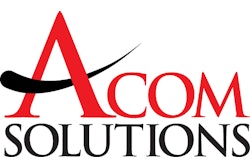ARC Advisory Group: Manufacturing execution systems also required to extend the value of an ERP system
San Jose, CA — February 17, 2005 — The ARC Advisory Group recently published a paper outlining the challenges of applying enterprise resource planning (ERP) systems to manage the complexities in today's manufacturing processes. The paper, titled "Why Can't I Just Use My ERP System for Manufacturing?," describes in compelling detail the logic that has led industry leaders to conclude that ERP and manufacturing execution systems (MES) are both required to achieve operational excellence in manufacturing. According to the paper, MES extends and optimizes the value of an investment in an ERP system.
"Large ERP systems provide significant support for maintaining the product record, but a big part of what is needed at the plant floor is the ability to make the connection among what happened to what unit with what result," claimed Greg Gorbach, vice president of Collaborative Manufacturing, ARC Advisory Group. "MES systems not only drive and enforce production according to established rules, they are also designed to capture every minutiae of detail of each unit that goes into a part, as well as the process that unit went through. MES systems capture real-time, real-world data as it is created, and help manufacturers take action in the moment, based on that information."
According to the report, plant floor needs are unique and require an "active" system that provides immediate detection and notification of any non-conformance event. Production managers require a system that will manage variances, problem inspection and resolution, and continuous improvement processes while enforcing production rules, operator certifications, and corrective actions. These capabilities are represented in MES systems today.
"Integrating ERP and MES systems helps manufacturers achieve maximum performance," added Gorbach. "ERP systems typically provide bills of material, orders and inventory management information to production operations, which are necessary pieces in the flow of product supply. The connection between ERP and MES then becomes a critical inflection point where interoperability standards are beginning to play a key role. Manufacturers must implement systems that are adaptive and collaborative in order to respond to market and customer demand."
ARC recommended that manufacturers carefully weigh the capabilities in both ERP and MES systems using time-to-deploy and total-cost-of-ownership metrics, in order to achieve desired product delivery goals. "Manufacturers should think carefully about the core competencies and strengths of both ERP and MES systems when deciding how to apply them to manufacturing," says Gorbach.
Visit this site to download ARC's white paper.











